- Second Opinion
A Child's First Dental Visit Fact Sheet
When should your child first see a dentist? You can take your child at a younger age, but experts recommend taking him or her within 6 months of the first tooth coming in (erupting), or by about 12 months at the latest.
At this time, the dentist can give you information on:
Baby bottle tooth decay
Infant feeding practices
Mouth cleaning
Pacifier habits
Finger-sucking habits

Prepare your child
If possible, schedule morning appointments so young children are alert and fresh.
Prepare a preschooler or older child for the visit by giving him or her a general idea of what to expect. Explain why it is important to go to the dentist. Build excitement and understanding.
Prepare yourself
Discuss your questions and concerns with the dentist. Remember that your feeling toward dental visits can be quite different from your child's. Be honest with your view of the dentist. If you have dental anxieties, be careful not to relate those fears or dislikes to your child. Parents need to give moral support by staying calm while in the dental exam room. Children can pick up parents' anxieties and become anxious themselves.
Prepare the dentist
At the first visit, give the dentist your child's complete health history. For a restoration visit, such as getting a cavity filled, tell the dentist if your child tends to be stubborn, defiant, anxious, or fearful in other situations.
Watch how your child reacts. Many parents are able to guess how their child will respond and should tell the dentist. Certain behaviors may be linked to your child's age:
10 to 24 months. Some securely attached children may get upset when taken from their parents for an exam.
2 to 3 years. A securely attached child may be able to cope with a brief separation from parents. In a 2-year-old, "no" may be a common response.
3 years. Three-year-olds may not be OK being apart from a parent when having a dental procedure such as getting a cavity filled. This is because most 3-year-olds are not socially mature enough to separate from parents.
4 years. Most children should be able to sit in another room from parents for exams and treatment procedures.
The first visit
Your child's first dental visit is to help your child feel comfortable with the dentist. The first dental visit is recommended by 12 months of age, or within 6 months of the first tooth coming in. The first visit often lasts 30 to 45 minutes. Depending on your child's age, the visit may include a full exam of the teeth, jaws, bite, gums, and oral tissues to check growth and development. If needed, your child may also have a gentle cleaning. This includes polishing teeth and removing any plaque, tartar, and stains. The dentist may show you and your child proper home cleaning such as flossing, and advise you on the need for fluoride. Baby teeth fall out, so X-rays aren’t often done. But your child's dentist may recommend X-rays to diagnose decay, depending on your child's age. X-rays are also used to see if the root of a jammed baby tooth may be affecting an adult tooth. In general, it is best that young children not have dental X-rays unless absolutely needed.
The second visit
Just like adults, children should see the dentist every 6 months. Some dentists may schedule visits more often, such as every 3 months. This can build comfort and confidence in the child. More frequent visits can also help keep an eye on a development problem.
Protect your children's teeth at home
Here are some tips to protect your children's teeth:
Before teeth come in, clean gums with a clean, damp cloth.
Start brushing with a small, soft-bristled toothbrush and a very small amount of toothpaste (the size of a grain of rice) when your child's first tooth appears. Use a pea-sized dab of fluoridated toothpaste after 3 years of age. This is when the child is old enough to spit out the toothpaste after brushing.
Prevent baby bottle tooth decay. Don't give children a bottle of milk, juice, or sweetened liquid at bedtime or when put down to nap.
Limit the time your child has a bottle. Your child should empty a bottle in 5 to 6 minutes or less.
Help your child brush his or her own teeth until age 7 or 8. Have the child watch you brush, and follow the same brushing pattern to reduce missed spots.
Limit foods and treats that increase tooth decay. This includes hard or sticky candies, fruit leather, and sweetened drinks and juice. Offer fruit rather than juice. The fiber in fruit tends to scrape the teeth clean. Juice just exposes the teeth to sugar.
- Stanford Medicine Children’s Health Pediatrics – Monterey
- Bass Center for Childhood Cancer and Blood Diseases
- Children's Orthopedic and Sports Medicine Center
Related Topics
Dental Care for Infants and Children
Adolescent Problems of the Teeth and Mouth
Connect with us:
Download our App:
- Leadership Team
- Vision, Mission & Values
- The Stanford Advantage
- Government and Community Relations
- Get Involved
- Volunteer Services
- Auxiliaries & Affiliates
© 123 Stanford Medicine Children’s Health
Dental Visits with Your Child: What to Do
Get ready, get set, go to the dentist!
Before the Visit:
- Share with your child the good reasons for going to the dentist.
- Talk about your child’s visit in a good way.
- Encourage your child about the visit. Do not dwell on possible pain, hurting, or bleeding that might not even happen.
- Stay in the waiting room if the dentist or the staff ask you to do so.
- Keep brothers, sisters, friends, and others from trying to scare your child about the dentist.
- Clean your child’s teeth before leaving for the visit.
- If you must cancel, please call the office as soon as you can.
At the Office:
- Bring your child’s health plan ID card.
- If you can, bring only the child who has the appointment to the dental office.
RELATED ARTICLES

Children's Oral Health
Setting Fun Resolutions with Kids
The secret to setting family resolutions that stick? Don’t take them seriously.

Oral Health for Babies
Follow these helpful tips to support your baby's oral health, even before their first tooth.
Eating a lot of snacks that have sugar may give your child cavities.

PREVENTISTRY PULSE
The newsletter designed for anyone who wants to improve oral health for themselves, their families, customers or communities.

Subscribe Here to Receive Our Emails
- PedSafe Experts
- Innovations
- Involvement
The Happy Visit: A Child’s First Trip to the Dentist
Posted by Dr. Bill Williams · 9 Comments
You want your child’s first experience at the dentist to be a positive one no matter what age they are. A child going to the dentist for the first time is often a handful of anxieties. Any dentist or hygienist using the right techniques can transform the most terrified child into a cooperative patient who is no longer afraid – a child who will leave the office with a smile on his face.

Some tips for a good first dental visit:
- First and foremost, pick a dentist that has a good reputation for working with kids. Some dentists specialize in pediatric dentistry but many family dentists will also be able to meet both you and your child’s needs.
- Secondly, if you decide to bring your child to the dentist at the age of one, try not to make a big deal about the visit. They can sit on your lap and you can comfort them as you would at any doctor’s appointment.
- Thirdly, your child may not remember their first visit to the dentist if they were a baby or toddler. We find a great way to help kids adjust is to bring them with you while you have your teeth cleaned and examined. They will be able to observe what the hygienist and the dentist does in your mouth. Allow them the opportunity to ask questions during your appointment.
- Another way you can help your child adjust is to talk about what a dentist does. Using things such as a small mirror at home to look in their mouth and count their teeth helps make them feel more comfortable when the dentist does it.
- Leading up to their first appointment, encourage your child to brush their teeth letting them know that their dentist will be excited to see nice clean teeth at their appointment. Tell your child how great their smile is and how their dentist wants to see them smile.
- Stay away from using phrases such as “Don’t worry, they won’t hurt you”. This places the idea in your child’s mind that it could hurt. Keep things low key and easy going. Kids also tend to do better with morning appointments rather then afternoon.
In the end, your goal is to create a non threatening environment for your child’s first experience at the dentist. You want to help them be excited about taking good care of their teeth which will in turn help them take better care of their whole body.

In an Emergency, Please Wait – EMS Will Be There!

6 Ways Kids Can Use Technology to Improve Their Grades

End the Teeth-Brushing Battles with Your Kids

Post Halloween: Teaching Our Kids the “Why” Behind Moderation

Code Adam: Because You Don’t Have Eyes in the Back of Your Head

Send Your Kids Off to School Without the Morning Chaos

Kids and TMJ – Aren’t They Too Young For That?

Do You Praise Your Kid Too Much?? There’s a Better Way…

Filed under Community Tagged with dentistry for children , healthy family , kids health , kids teeth , pediatric doctor , PedSafe
Read more articles by Dr. Bill Williams
About the Author

Dr. Bill Williams
Great advice! I followed a friend’s advice and took my children with me to the dentist from the time they were born – not to have their teeth checked, just to sit in their stroller and watch me. When they had teeth the dentist let them sit in the chair so he could count their teeth. By the time it was time for a real cleaning they couldn’t wait for their turn. Now 8 and 6 they love going to the dentist – long may it last! .-= Rebecca Wear Robinson´s last blog .. Who is watching your children? =-.
I like your tip to bring your child to the dentist while you have your teeth cleaned. Not only will this allow your child to observe the procedure; it will demonstrate to them that there’s nothing to be afraid of. Children often look up to their parents for cues on how to react to a situation, so acting calm during your dentist appointment can help them be calm during theirs. Thanks for the article.
Thanks Hazel…how very right you are! Children take their cues from us when it comes to situations like this. Showing them there’s nothing to be scared of can make all the difference!
My daughter loves brush her teeth. And i loves when she ask for more! Nice article! I liked it.
Thank you for the feedback. We’re glad you enjoyed the post.
Your tips could save some parents some stress, especially the one about preparing the child for someone holding a mirror to their teeth by doing the same beforehand at home. Your other tip about excitedly cleaning the child’s teeth can prepare them to show their great work to the dentist and give them a sense of ownership in the experience, making it fun.
Thanks Christina. We are glad you enjoyed the post. Appreciate you stopping by.
[…] This post was mentioned on Twitter by Stefanie Zucker, Dental1.org. Dental1.org said: How to make your child's first trip to the dentist a happy one. (Saying "It won't hurt" places idea of pain) http://ow.ly/21pho #dentist #fb […]
[…] see the need for at least a few years. Thankfully there are a lot of resources out there, like from Pediatric Safety, WebMD, and the American Dental Association that can help parents make the right decision for their […]
Speak Your Mind
Tell us what you're thinking... and oh, if you want a pic to show with your comment, go get a gravatar !
Name (required)
Mail (will not be published) (required)
Currently you have JavaScript disabled. In order to post comments, please make sure JavaScript and Cookies are enabled, and reload the page. Click here for instructions on how to enable JavaScript in your browser.

Pedsafe Experts
Donate to Support Us
Site Archives
- April 2024 (4)
- March 2024 (4)
- February 2024 (4)
- January 2024 (5)
- December 2023 (4)
- November 2023 (4)
- October 2023 (5)
- September 2023 (4)
- August 2023 (4)
- July 2023 (5)
- June 2023 (4)
- May 2023 (4)
Copyright © 2009 -2024 Pediatric Safety • Decatur GA 30033 • Terms of Service • Affiliate Disclosure • Privacy • Log In •

How to Make Dentist Visits a Part of Your Child’s Routine

Many adults in America are afraid to visit the dentist. In fact, millions of Americans forgo the dentist entirely because of their fear. If this many adults are afraid of seeing their dentists, imagine what their kids must feel like. Unfortunately, most children are afraid of seeing the dentist, and will often put up a fight when it’s time for their checkup . However, there are ways you can prepare your child for dentist visits so that they are less painful in the long run.
One of the most important things you can do is to make these visits part of the routine. Children, especially young ones, thrive off of routine and once you get a trip to the dentist as a part of that routine, they will soon grow used to the idea. So, how exactly can you make visiting the dentist part of your child’s routine? Here are some ideas.
Start Early
The American Dental Association (ADA) recommends that every child see a dentist before their first birthday or when their first tooth erupts. While young children will eventually lose their teeth and receive their adult teeth, the baby teeth are still just as important. Healthy teeth can help a child properly learn how to speak and chew. If allowed to spread unchecked, disease in the baby teeth can lead to serious damage to the adult teeth and overall oral health.
Provide an Example
Children will often look to their parents first for an example of what they should be doing. If you create a positive atmosphere surrounding dental visits, your children will start to take on that same attitude.
Show them that you are willing to visit your dentist on a regular basis and that it isn’t something they should fear. Avoid using scary words like drill, needles, and hurt. These will only upset your child more. Instead, focus the conversation on making the whole visit a positive experience. Take some time to explain to your child the importance of dental health before going to see the dentist.
Find the Right Dentist
Another crucial step to making dental visits part of your child’s routine is to find the right dentist for your child. While you may love the dentist you see, he or she may not be a good fit for your child. In fact, your dentist may not have any experience with children.
Spend some time researching kid-friendly dentists in your area. Gather a short list and research the dentists further by calling or visiting their offices. The right dentist will be able to comfort your child at the first visit.
Use Honesty
You never want to trick your children into going to a dental appointment. That will only instill more fear and distrust of the dentist. Always try to be upfront and honest about what is going to happen during the visit. If you lie about one thing, and your child finds out, it can make the whole process a lot more terrifying. If you don’t know the answer to a question, make sure to ask the dentist when you go to the appointment.
26 Aug 2015
- Kids Dental Care
- Pregnancy Weeks
- Nursery Design
- Toddler Sleep
- White Noise
Your Baby’s First Dental Visit
You and your baby managed to survive the first round of teething ! Congratulations! But what do you do now that your precious nugget’s adorable little first chompers have finally emerged? Yes, brush them, but are dental visits really in the cards already? If you’re unsure you’re not alone! Here’s your guide to when to make that first appointment…and what to expect once you get there.
When do children need to visit the dentist for the first time?
Sooner than you think! Both the American Academy of Pediatrics (AAP) and the American Academy of Pediatric Dentistry (AAPD) recommend that your kiddo be examined by a dentist soon after their first tooth erupts…or within six months of their first birthday. Unfortunately, studies show that the average age when children actually first visit the dentist is three years old!
Perhaps this is because some parents are confused as to why a baby would need to see a dentist when their smile is only sporting one or two teeth . Here’s why:
Quells fears. When children visit the dentist early, they learn not to fear the dentist, which makes those future appointments go smoother.
Learn about dental care. Tots can learn early dental care habits that’ll help keep their teeth clean, healthy, and—fingers crossed—cavity-free.
Spot problems early. When dentists catch potential problems early, they can intervene before those issues become more serious.
Do children need to see a pediatric dentist?
Need? No. General dentists who enjoy kids can be a perfect fit. Just know that a pediatric dentist has two to three years specialty training following dental school and they only treat the smallest of patients. General dentists have about five weeks of training in treating kids.
How to prepare for your baby or toddler’s first dental visit:
Here’s the thing: Your tot has no reason to fear the dentist…they ’ ve never visited one before! So, it’s up to you to set the stage for a positive experience. Here are some ways to do just that:
Get the timing right. Choose an appointment time for when your child is at their most alert, happy...and well fed. That means it’s best to avoid the dentist during nap or feeding times, when kiddos will likely be hungry and fussy.
Call ahead. Waiting is hard for little ones. Before you head out the door, make sure your dentist is on schedule.
Give a preview. If your child is old enough, talk about what they can expect, like the cool dental chair that goes up in the air and the fun sunglasses they get to wear. You can also play dentist at home, so your child can get used to someone looking at their pearly whites up close.
Do this ahead of time. To make that first appointment go off without a hitch, see if you can fill out any paperwork before the appointment so you can focus solely on your tot during the visit.
What happens at the first dental appointment?
Your tyke’s first visit to the dentist is primarily a meet-and-greet to get everyone acquainted. You can expect the appointment to last around 30 minutes, and you’ll spend most of your time answering questions about the following:
- Family dentist history
- Pacifier use
- Bottle and breastfeeding schedules and habits
- Oral hygiene
- Sleeping habits
Your child’s dentist will also give a quick, no-stress first exam. Typically, your first-timer can sit on your lap while you lounge in the dental chair. This can work wonders for keeping littles calm, especially if they are nervous about a near-stranger peering into their mouth. During the exam, the dentist will:
Count teeth
Check for cavities and other dental issues
Assess development by looking at jaw, bite, gums, tongue, and the roof of your kiddo’s mouth
Clean teeth with a soft toothbrush if plaque is found to demonstrate brushing technique
Discuss a home dental-hygiene routine
Your child’s dentist might also offer a fluoride varnish treatment, which can help prevent, slow down, or stop tooth decay. (Fluoride is a mineral that works to strengthen tooth enamel.) The United States Preventive Services Task Force recommends that primary care physicians apply a fluoride varnish to all infants and toddlers starting when their first tooth appears (and through the age of 5), but if your child’s doctor hasn’t mentioned it, ask your pediatric dentist about it.
How often do toddlers need to go to the dentist?
Just like you, children should see a dentist once every six months. For toddlers, especially those who fear the dentist, it may be beneficial to inquire about visiting the dentist once every three months to establish trust and confidence.
Got more teeth questions? Here's help!
Why Do Toddlers Grind Their Teeth?
How to Brush Baby and Toddler Teeth
What Thumb-Sucking Has To Do With Dental Health
Toddler Teething and Night Waking
When to Expect Baby’s First Tooth…and Beyond!
View more posts tagged, health & safety
Have questions about a Happiest Baby product? Our consultants would be happy to help! Submit your questions here.
Disclaimer: The information on our site is NOT medical advice for any specific person or condition. It is only meant as general information. If you have any medical questions and concerns about your child or yourself, please contact your health provider.
You may also like
In the 48 contiguous United States, customers will be charged $59.50 + tax for the shipment of SNOO back to Happiest Baby. Added charges will apply for shipping to and from Alaska and Hawaii.
* An additional $185 shipping fee will be applied to SNOO purchases sent to Hawaii and Alaska.

- Clinical Science
- Clinical II
- Privacy Policy
- Terms of Use
Preparing For Your Child’s First Dental Visit: Before, During, And After
Medchrome Partners
- May 2, 2023
- 11 min read
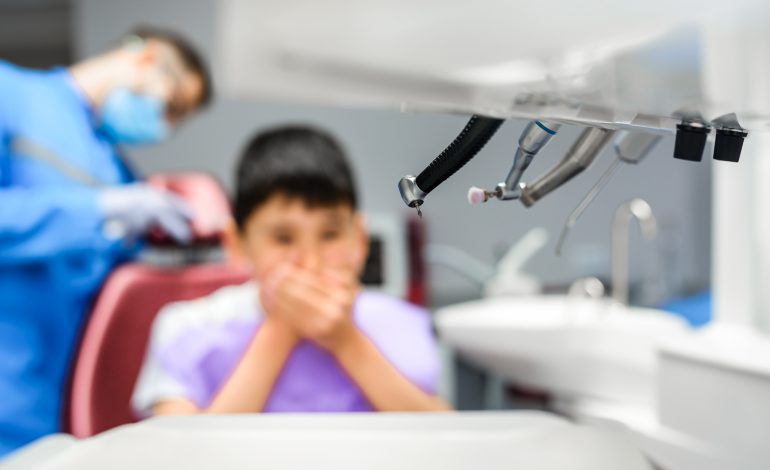
One way or another, your child must visit a dentist for a quick check-up. While you can skip this process, you wouldn’t want to put your child in pain when they experience tooth pains. Visiting a dentist is part of maintaining good oral health. However, not everyone, especially children, enjoys visiting the dentist.
Going to the dentist for the first time can be a daunting experience for a child. As a parent, you should prepare your child before their first dental visit. Painting a positive experience can help them enjoy their day at the clinic. To avoid causing fear, you should plan and understand what to expect before, during, and after your child’s initial dental visit.
What To Do Before The Visit
Your child’s experience will depend on how well you prepare for the day. Proper preparation can make or break your child’s expectations, affecting their future appointments. Starting your day with a positive mood and ambiance can make the day enjoyable.
Listed below are the things to prepare before your child’s first dental visit:
- Look For A Good Pediatric Dentist
Your dentist can significantly influence your child’s first dental experience. Ideally, it helps to look for an excellent pediatric dentist who can perfectly handle every child’s mood. Not every kid can be calm sitting on a dental chair.
Your dentist should know how to make a child comfortable under their care. They must also be patient as they’ll deal with tantrums and delays. You can search online for reliable pediatric dentists. You can check familydentalhealth.com or other dentists near your area.
When deciding on the clinic, you must check the clinic’s reviews from actual patients. It’ll help you determine if they’ll be the perfect choice for your child. Call the clinic to see if they sound friendly or fun enough for your child.
You can visit the clinic to see if they have friendly staff. The fun decorations and colors can make your child feel more comfortable. Also, ask the clinic if they offer family services. That way, the entire family can visit a single dentist for all dental needs.
- Be Optimistic
Showing anxiety can harm your child’s experience. It’ll make it harder for them to be comfortable in a dental clinic. It’s best to toughen up and show optimism to your child about dental visits. Show them that visiting a dentist is nothing to fear.
When talking with your child, keep a positive mood throughout the conversation. Put a happy face as you describe what’ll happen. Mind the tone of your voice, and remember to keep everything light and airy.
When you walk inside the clinic, put a happy smile on your face and ensure your child sees it. That way, they can incorporate the event into something fun and exciting. On the other hand, when your child shows fear or anxiety about the visit, you must validate it.
Let them feel heard and understood about their emotions. Let your child know that what they’re feeling is normal. You can emphasize how strong they are for facing their fears and how proud you are of their bravery.
- Inform Your Child The Same Day
If you tell your child about their appointment days before the event, they may imagine awful things. Unfortunately, it may lead to negativity. Hence, it would be best to inform your child about their dental visit on the same day as their appointment.
Surprising your child about their dental visit gives them less room to overthink. They won’t drown themselves in negative thoughts but deal with them immediately. Alternatively, you can drive them to the dental clinic and surprise them with the visit. Make it a fun surprise, so your child can consider it a fun event.
- Read Books Or Watch Videos
Plenty of books and videos online can help your child prepare for their first dental visit. You can choose a book or a video that shows what will happen during their appointment. You can tell them scenarios wherein everything turned out well, and there was no pain. Your stories should convey how the dentists helped the kids make their smiles look better.
Keep a friendly and happy tone as you read to your child. Point out what kind of tools dentists use and what they’ll use them for. When watching a video, it’s ideal if it shows their favorite cartoon character or a kid about their age. That way, they can visualize what’ll happen during their visit. You can watch the video first to see if it’ll end well and if it’s informative enough.
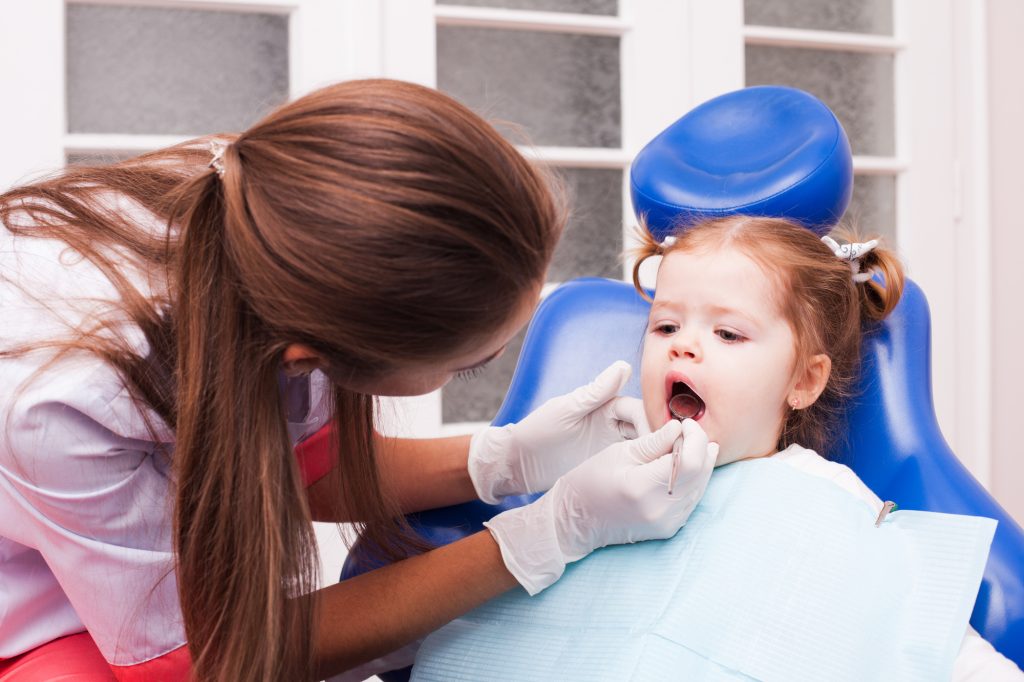
- Play A Dentist Game
Along with reading books and watching videos, playing a game will be more helpful. Purchasing dental toys can let your child feel comfortable with the tools. You can also allow your child to act as a dentist and let them have a peek at your mouth. Alternatively, you can be the dentist and pretend to examine your child’s mouth.
You can make it more fun by singing happy songs and exaggerating how fun it is to be in a dental clinic. You can also ask some family or friends to visit and play pretend games with your child. It could make your child more comfortable by checking other people’s mouths. Remind them never to show pain during the process and make the experience fun for your child.
If your child has a favorite toy, you can bring it during their dental visit. Your child’s favorite toy can help them calm down. You can also take some old favorites they haven’t played in a while. Seeing their favorite toy can make them feel safe as they hug them throughout the session.
- Schedule The Appointment During Good Hours
Expecting a successful dental appointment with a child is almost impossible. If your child throws tantrums, they might not cooperate reasonably with their dentist. They might not even sit on the dental chair and will cry and fight their way out of the clinic. Hence, scheduling your visit during good hours is best to avoid wasting your appointment.
It’s better to make a dental appointment when your child is in their best mood. It could be after their nap or mealtime, wherein they’ve met all their needs. This way, they’ll be more open to cooperating. They’ll follow the dentist and be comfortable on the chair, turning in a successful visit.
- Prepare Child’s Medical And Food History
Before you drive to the clinic, you can prepare your child’s medical and food history. You need to list every medical condition and procedure your child had. It’s also best to be specific when listing your child’s food history.
Is your child a fan of sweets? Do they like fruits? Do they prefer to drink water or fruit juice? What your child puts in their mouth can say a lot about their oral health. It can help their dentist identify the cause of oral concerns.
During your interview with the dentist, you must stay transparent. Let them know every detail about their diet, whether they eat healthily or not. Reviewing your child’s oral health might be a good eye-opener for ensuring their overall health .
Preparing your child days or weeks before their first dental visit is necessary. You can begin by reading them books and introducing them to dental toys. You can inform them about their appointment on the same day but do early mental preparations. While painting a happy experience may take a while, it can make the event more comfortable for your child.
What To Do During The Visit
The sound of the machine might feel intimidating, or the mood of the place might be off-putting for your child. You must make your child feel at ease during the appointment to help them cooperate.
Below are some things you can do during their dental visit:
- Talk To Your Child
Your child must sit on the dental chair as the dentist checks their mouth. They might feel anxious when sitting alone with unfamiliar people and surroundings. It’ll be helpful if you could continuously talk to your child to let them know that you’re there and they’re safe. You can also hold their hand or foot during the session.
As your child sits on the chair, you can talk to them cheerfully. Tell them they’re doing a great job. You can make them feel safe by saying they’ll be in no more pain after the visit. You can also say that the dentist will only check their teeth to see if they’re shiny and white.
- Play Their Favorite Music
Your child can be calmer when they hear their favorite music playing in the background. You can download your child’s favorite music or nursery rhyme and play it on your phone. You can also take their headphones and let them listen to music while the dentist examines their mouth.
Ideally, you can create a playlist before your appointment. This way, you’ll no longer search for your child’s favorite music; you can instantly hit play.
- Prepare Yourself For An Unsuccessful Visit
Sadly, not all dental appointments are a success. There are instances where a child might fight their way and not cooperate during their visit. If this happens with your child, you must prepare yourself and not show disappointment.
Your child might still not be ready or has developed a great fear of the dentist. Forcing your child will make them link their dental visit with trauma. When this happens, it would be better to reschedule when your child is more understanding.
The best thing you can do during your child’s first dental visit is to keep calm. You can make your child feel safe by talking to them or listening to their favorite tunes. While an unsuccessful visit is possible, it’s still best to show encouragement.
What To Do After The Visit
Every parent wants their child to have a positive experience. Hence, there are several things to do after your child’s first dental visit .
Listed below are the things you must do after the visit:
- Emphasize The Good Things
After your dental appointment, emphasize the good things that happened to your child. Tell them how brave they are for facing their fears and how proud you are as a parent. Showing enthusiasm can help your child leave the clinic with a good experience from their dental appointment.
- Ask About Their Experience
After the visit, have a quick conversation with your child. Ask them about their experience and see if they had fun. You can ask them if they’re uncomfortable with their dentist or prefer to visit a different one. With those questions, you can look for ways to make your child more comfortable.
- Take A Quick Trip To The Park
You can reward your child who bravely faced their fears by giving them a small prize. It doesn’t have to be something grand. It can be something new and exciting. You can take a quick trip to the park and let them enjoy themselves for a few minutes. That way, they can incorporate their dental visits with something fun and unique.
- List Down Tips From Your Dentist
Your dentist will probably give you tips on how to improve your child’s oral health. It could be updating their diet or routine. You need to list down every detail your dentist would have to say and ensure that you follow them as you get home. You can prepare a pen and paper or list them on your phone.
As you prepare what you must do after your visit, you can make your child enjoy their dental appointment by telling them to say their goodbyes to their dentist and nurses. That way, they’ll look forward to their next visit.
Preparing for your child’s first dental visit is essential. The most crucial part is before your appointment. It sets their mood and expectations for the day. By involving their dental appointments with something cheerful, they can feel safer.
While it might take quite a while for your child to get excited about their dental appointment, you can prepare things for them to make their first visit an enjoyable experience. You can watch videos, tell them stories, or play fun and exciting games. These things can have a positive impact on their first dental visit.
About Author
The author publishes the articles promoting the relevant services and websites partnering/collaborating with Medchrome magazine. Please read Disclaimer at top menu for full information.

A Timeline of Amazing Public Health Achievements in the 21st Century

How Does Loud Noise Cause Hearing Loss?
What is medchrome.
Medchrome – Online Medical Magazine has been publishing academic medical and health related articles since 2009. Medchrome Networks include Medchrome Videos, Medchrome Answers and has collaboration with Epomedicine – Mnemonics, Simplified Concepts and Thoughts.
DISCLAIMER: The Articles and information on Medchrome are NOT intended as a Medical advice. Any information, protocols, illustrations and products contained in this website is for INFORMATION and EDUCATION PURPOSE only. Please consult a healthcare profession for any medical advice.
Recent Articles
- Hormone Blood Tests for Fertility: What They Reveal About Your Reproducive Health
- The Connection Between Clutter & Your Mental Health
- Smart Sensors for Real-Time Monitoring of Food Quality and Safety Parameters
- The Adverse Effects of Bed Bugs in Healthcare Facilities
- Unlocking the Brilliance: Simplifying Teeth Whitening
Medchrome Answers
Related posts.

Year’s Review Medchrome:
Year 2016 has been a year of growth for Medchrome magazine, with increasing readership, Projects
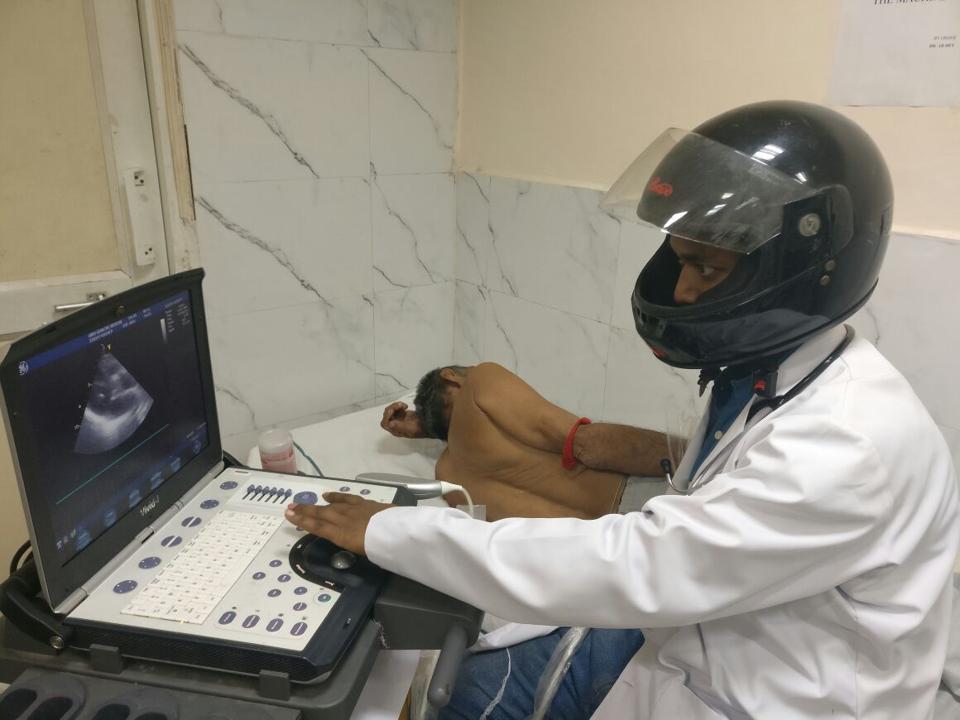
Being Doctor: Then and Now, Is it worth it?
Recently, the social media has been flooding with news of Doctors being assaulted ( thrashed,

Role of Clinical History in Laboratory Diagnostics
The Supreme Purpose of History is a Better World ~ Herbert Hoover ‘History’ is derived
How to Prep for Your Child's First Dental Visit

There are a few sage pieces of advice that we’ve used to prep our own children for their first dental visit, and these tips have worked for many of our adult patients who are parents and bring in their little ones. These pieces of advice can be helpful regardless of your child’s age.
How do I prepare my child for their first dentist visit?
To prep for your child’s first dental visit , try the following.
- Play the dentist at home before the visit.
To help to set expectations and make it fun, pretend that you’re the dentist ahead of time! Get your child comfortable on a couch or lounging chair and pretend that you’re checking out their teeth and counting them. Applaud them for keeping their mouth open by saying affirmative phrases like, “Amazing job!” and, “Wow, the dentist is going to be so impressed!”
If your child has a doll or if you have a pet, you can also encourage your child to play dentist by counting their teeth. Kids tend to love this fun skit and it makes them more comfortable on their first visit.
- Tell them about your own dentist visits - in a very positive tone.
Your kids look to you to see if something is fun or safe. So, let them know about all the times you’ve been to the dentist in your life, and tell them how much you enjoyed getting your teeth checked! Help them to view a dentist appointment as something they can look forward to that helps their teeth and their smile.
It will also lessen any feelings of anxiety if your child knows what the dentist looks like. So, prior to bringing them in, show them pictures of the office space and the dentist on the website. You can show pictures of your own dentist, too (whether it’s the same dentist they’ll be seeing or not).
- Let them bring along a stuffed animal.
Let them know that they can choose one very special stuffed animal (or, their blanket) to accompany them to the dentist’s office. Make this part of the fun! Use language like, “Bring (your stuffed animal) along for an adventure to the dentist!”
- Plan a special outing afterwards.
Plan a fun lunch or a visit to a museum or the park for directly after the visit. This will give your child something to look forward to, and can also be used as an incentive for their cooperation during the appointment. Try saying something like, “If you do really well and keep your mouth open big for Dr. Staci, we can get frozen yogurt on the way home!”
These tips will help your child feel more at ease with their first visit to the dentist, which makes it easier for everyone involved! When in doubt, find a way to make it fun. We do all we can at our office to make sure your child feels comfortable and happy each step of the way.
You Might Also Enjoy...

When Should You Make Your Child’s First Dentist Appointment?

3 Advantages of Sealants for Your Child’s Smile

Tips to Protect Your Smile After a Surgical Extraction

How to Help Your Child Overcome Dental Anxiety

Have a Busted Filling? How to Tell If It's a Dental Emergency

How Your Dentist Can Help You Manage Snoring
Follow us on social media.

Accepting Most Private Insurance
Junior Smiles® accepts most insurance plans.
Your Child's First Dentist Visit
The first visit is FREE for kids under 3!
Your First Visit: What to Expect
We strive to make every visit to the dentist fun and relaxing.
Recommended every 6 months.
Catch signs of problems early.
Emergencies
Our on-call dentist is here to help, anytime.
Dental Cleanings
Keep your child's teeth strong & healthy.
Crowns & Fillings
Provides strength and protection to a tooth.
Extractions
A last resort in keeping teeth healthy.
Flouride Treatment
Makes teeth stronger and resistant to cavities.
Prevents the development of cavities.
Patient Education
View our blog for useful information.
Kids dental sedation methods.
After Sedation
Caring for your child after sedation.
After Tooth Removal
Caring for your child after tooth removal.

First Dentist Visit

When should I take my child to the dentist for the first time?
According to the American Association of Pediatric Dentists , your child’s first dentist visit should happen when the first tooth arrives or their fist birthday, whichever comes first.
Your child’s permanent teeth are developing beneath the gums and beneath their baby teeth. A pediatric dentist will ensure everything is developing normally in your child’s mouth, and give you some good habits to develop for infant oral care.
First Visit Free for Kids Under 3
Jr. Smiles® offers a free ‘Starter Kit’ where our pediatric dentists will examine your child for free if it’s their first visit to our office and they are under 3 years of age.

Too Young to be Nervous
Children under a year old are too young to be nervous or anxious about the dentist but delaying the first visit until your child is older means calming their anxiety of visiting the (unknown) dentist.
Furthermore, waiting until they are two or three years old increases the plaque on their teeth, and the risk of cavities and tooth decay, not a good precedent.

Click on the image above to download this coupon and present it upon arrival at our office to qualify for this promotion. Opens in PDF.

What Happens on the First Dentist Visit?
Your child’s first visit is an opportunity to explore the instruments, and ‘take a ride in the chair’! The Jr. Smiles® staff works hard to develop familiarity and positive connections with your child.
Your Child’s First Dental Checkup
While your child is exploring, our Jr. Smiles® pediatric dentist will look in their mouth, check for cavities, and evaluate your child’s gums, jaw, and bite.
In addition, we look for bottle decay, frenum issues, or other problems that may affect teeth, speech patterns and smiles.
Take a Virtual Tour of Our Facilities
Our facility was created in the spirit of making kids comfortable and creating an inviting atmosphere.
From open spaces and fun colors, to a gift area that sends each kid home with a smile on their face and a toy in their hand, Jr. Smiles® aims to make your child’s visit to the dentist an enjoyable experience.
See for yourself by taking our virtual tour !
Book Your Child’s Appointment Now
Come visit us in Thornton at 9645 Washington St., Suite 100.
You can also reach us with any questions, or to book an appointment, by phone at (303) 455-3313 or by email at [email protected] .
We look forward to meeting you, and helping your child grow with great dental health.
Ready to book an appointment? Contact us today!
- Most Private Dental Insurance
- CareCredit®
Fill out the form below to get in touch.
- Name * First Last
- Your Message:
- Email This field is for validation purposes and should be left unchanged.
Contact us today to book your appointment:
- Most private dental insurance
9645 Washington St., Suite 100, Thornton, CO
Working hours
Monday–Friday: 7:30am–5pm
- Name This field is for validation purposes and should be left unchanged.
We detected that you're using an older version of Internet Explorer. please upgrade IE 11 or later
Alternatively, you can install and use these secure and newest browsers: Chrome | Firefox | Safari for MacOS | Edge for Windows
- Join Our Team
- (800) 717-KIDS (800) 717-5437
- Book Online
- San Fernando
- West Covina
- West Los Angeles
- View All Locations
- Pediatric Dental Care
- Dental Braces for Kids
- Sedation Dentistry
- Emergency Dental Care
- Treatment For Special Needs
- View All Services
- Child’s First Visit
- Insurance & Financing
- Referring Offices
- Video Gallery
- Covid-19 Information
- Community Outreach

What Is the Average Price for Braces for Kids?

The Truth About Pacifiers
For full functionality of this site, it is necessary to enable JavaScript. Here are the instructions how to enable JavaScript in your web browser .
If you have questions / concerns about the site please call us at (800) 717-KIDS or send us an email at [email protected]
Your Child’s First Dentist Visit
The first trip to a dentist can be a scary and anxious time for a child. They don’t know what to expect, and being in the exam room can be frightening for them. However, a child’s first dentist appointment is an important step in ensuring proper and healthy dental practices that will last a lifetime. Because of this, it’s important for both parents and office staff to help ease a child’s fears.
The American Academy of Pediatric Dentistry recommends that a child’s first visit to the dentist should be before his or her first birthday. Properly caring for a child’s baby teeth helps children to have healthy permanent teeth as they grow older. These early visits can identify any problems your child may have and address them early, especially if there are any problems with eating or speech.
Early appointments also help your child have a comfortable relationship with the dentist, easing fears and building trust and understanding that good oral hygiene and regular dental visits are important to overall health.
A first visit to the dentist will usually include a full mouth exam, including the gums and surrounding tissue. The dentist will take digital x-rays and a health history, such as eating habits and any illnesses. The dentist will also instruct you, the parent, in proper oral care for your young child and will discuss any potential issues that may arise as your child gets older and the permanent set of teeth come in. Your child will have a cleaning and a fluoride treatment and—if old enough—will be instructed on proper brushing and flossing.
Taking your child to a dentist who specializes in children’s dentistry can make dentist appointments a more comfortable experience for your child. Not only will the pediatric dentist ease your child’s fears, he or she can also ease any fears you may have about your child’s oral health. By working together with your dentist, it is easy to teach your child how to best care for their smile so that it stays beautiful throughout his or her life.
Share This Article:
You may also like.

What Happens at a Child’s First Dentist Appointment?

When Should a Child First See the Dentist?

When to Take Toddler to the Dentist
Thousands of 5 star reviews.
“The whole staff was professional, friendly and super patient. They made sure to walk me through the whole process. I haven’t dealt with a great office like this before. I will definitely keep bringing my kids here..”
– Abby from Google
Terms of Use
Please be aware that this is not a secure email network under HIPAA guidelines. Do not submit any personal or private information unless you are authorized and have voluntarily consented to do so. We are not liable for any HIPAA violations. Understand that if you email us, you are agreeing to the use of an unsecured method and understand that all replies will be sent in the same fashion, which you are hereby authorizing.
By checking this box you hereby agree to hold Children’s Dental FunZone, including it’s doctors and affiliates, harmless from any hacking or any other unauthorized use of your personal information by outside parties. By checking this box, you also agree to receive email communication from Children’s Dental FunZone, including its doctors and affiliates.

What to Expect at a Child’s First Dental Visit Under the Age of 3.
According to the American Academy of Pediatric Dentistry (AAPD), a child’s first trip to the dentist should be around age 1 or 6 months after the first tooth erupts. Many general/family dental practices will tell you they start seeing children at age 3, and sometimes that can be too late to prevent tooth decay. Dr. Fisher at The Kids Dentist is a Board Certified Pediatric Dentist who strives at prevention of tooth decay and dental trauma.
Many parents are unsure if their child will cooperate or even open for a dentist at this age. No worries here! There are many distractions for your children, and sometimes Dr. Fisher is your child’s mouth and doing an exam before the child even notices! We will also talk about Oral hygiene instructions, tooth eruption, fluoride use and good snacking habits.
For a child under the age of 3, most will be completed in the comfort of your lap. We like to call it a lap to lap or knee to knee exam. We’ll have your little one sitting in your lap facing you giving you a hug. When it is time to take a look, you will then lean your child back onto Dr. Fisher lap, while you get to gently hold their hands and get a bird eyes view of all those teeth! Once we have them reclined, Dr. Fisher moves very fast to examine and clean the teeth if necessary. Before you know it, your child will be sitting up in your arms, ready to get a prize!

Patient Forms Dental Emergencies Dental Library Postoperative Dental Care
We will do our best to get back to you in a timely manner! You can always call the office for more immediate attention or for emergencies. 262-241-0400
- Skip to primary navigation
- Skip to main content
- Skip to footer

Noble Pediatric Dental
Gentle care from the start
(513) 514-8440
Your child’s first visit.
Along with the American Academy of Pediatric Dentistry, we recommend that a child’s first dental visit be scheduled by his/her 1st birthday. At any age, a good first appointment experience provides the foundation for an enjoyable long-term relationship with a dentist as part of your child’s healthcare team.

The first visit is usually short and simple. We focus on getting to know your child and giving you some basic information about dental care. Dr. Jaclyn will check your child’s teeth for placement and health, and will look for any potential problems with the gums and jaw. If necessary, we may do a bit of cleaning. We will also answer any questions you have about how to care for your child’s teeth as they develop, and provide you with materials containing helpful tips that you can refer to at home.
The best preparation for your child’s first visit to our office is your positive attitude. Children pick up on adults’ apprehensions or their enthusiasm. If appropriate, show your child the pictures of the office and staff on the website. Let your child know that it’s important to keep teeth and gums healthy, we will help with that. Remember that our staff is specially trained to handle normal fears and anxiety, and our staff excels at putting children at ease during treatment.
Now Accepting New Patients
We believe it’s important for your child to be comfortable in our office and with our staff. Make your appointment today.
Make An Appointment

Fax: (513) 514-8441 2727 Madison Road, Suite 204 Cincinnati, OH 45209

First Visit Expectations
Below is an overview of what you can expect during your first visit to care for kids pediatric dentistry..
From the moment a child walks through the door, our goal is to serve them and their families. At Care for Kids Pediatric Dentistry, we hope to change each family's expectation of what a dental visit can be! We provide a comfortable, fun, positive dental experience for kids (and their parents!)
Upon entering the front door, you and your child will be greeted with a smile from one of our well-trained administrative specialists. Our waiting room is designed with children in mind. With the BEAM interactive projection system, we have turned our waiting room into a virtual playground. We have found that playing is a great way to break the ice and soothe anxiety. It is hard to be nervous when you're dancing and laughing!
Now that the kids are having fun at the dentist, the patient will transition to the x-ray area with one of our licensed dental assistants for pictures of their teeth.
Once the pictures have been taken, the patient will head to the hygiene area where they can lay back and watch their favorite movie from Disney+. Special glasses will be placed on the patient, and our licensed dental hygienist will make sure their pearly whites sparkle.
With smiles on their faces, x-ray pictures in place, and their teeth sparkling clean, our board-certified pediatric dentist will perform an exam and answer any questions from both patients and parents. Our smiling patients will receive a gold token that they can take to the front and choose their prize.
We want to encourage healthy oral hygiene for every household. One of the greatest joys in our field is watching families grow to improve and support their children's oral health at home!
Appointment Policy
For existing patients our office does have a 5 minute late policy in place. We ask that if you do anticipate arriving late to your scheduled appointment to please call and inform us. If your arrival does happen to be later than the 5 minute grace period, rescheduling may be necessary in order to give priority to the on time scheduled patients.
For new patients we do ask that when possible you complete new patient paperwork prior to arriving at the scheduled appointment. Our new patient forms are available HERE>> . If completing online paperwork is not an option, new patient paperwork can be filled out in office. If choosing to complete paperwork in office we ask that you arrive 15 minutes early to your scheduled appointment. If you arrive at the scheduled appointment time, rather than early without completing new patient paperwork, you may be asked to reschedule.
Skip to content
- Health Insights
Health Insights is your guide to wellness and medicine, informed by clinicians from Columbia University Irving Medical Center.
Specialties
- Treatments & Conditions
Find a Doctor
For patients.
Search for a provider by specialty, expertise, location and insurance. Schedule an appointment online.
Preparing Your Kid for Their First Visit to the Dentist
Dentist visits, like annual physicals, are a regular part of taking care of our health.
Explaining a dentist visit to a child—especially their first visit—should be simple and reassuring, helping them feel comfortable and prepared. It should also encourage checkups throughout their life.
We spoke to Amy Herbert, DDS, MHA , to learn more.
When should a child first see a dentist?
When the first tooth comes in, typically around six months, or by the time the child turns one.
What do all parents ask you about a child’s first dental appointments, and what do you tell them?
Why start going when children are young?
In addition to identifying early concerns, it is good to establish the practice of visiting the dentist and establishing a positive routine. This first appointment helps get a child used to visiting the dentist.
It is also an opportunity to teach a parent about their child’s oral health: various kinds of toothpaste, diet, and nutrition (snacking habits and food and drink choices), and when and how to brush effectively are discussed.
We may also talk about teething, non-nutritive sucking habits (thumb sucking and pacifier use), sippy cups, utensils, and transitioning to table food and regular cups.
After the first dentist visit, you always have someone to call if your child has a dental injury.
Is there a best time or day of the week for the first dentist visit?
Typically, the morning is the best time for young patients, not only because they are fresh and alert, but so is the caretaker!
Try to avoid taking your child to the dentist the same day you take them to the pediatrician or other doctor. It can be too much.
How long does the first dentist visit last?
30 to 45 minutes.
What happens at the first dentist’s visit, and how should a parent or caregiver explain it to a child?
Depending on their age and level of cooperation, the child may be seated on the parent’s lap or in the dentist’s chair on their own. Like all visits, the first visit usually includes an exam of the teeth, jaws, bite, gums, and oral tissues to check growth and development. If needed, a child may also have a gentle cleaning. This includes polishing teeth and removing any plaque, tartar, and stains.
The dentist should show the child and parent or caregiver how and when to properly clean teeth, floss, and brush at home. Sometimes, there may also be X-rays. But typically, they aren’t done until a child has contact between their teeth (they are touching). If there are any issues or concerns, the dentist will discuss treatment options.
What should I say or do for my kid to prepare them?
Here are a few things you might want to cover with your child:
- A dentist looks at your teeth and gums to see if everything is okay and healthy.
- A dentist—or dental hygienist—cleans teeth with special tools that remove tartar and plaque and floss and polish your teeth to help keep them healthy.
- “sugar bugs” (bacteria)
- “spinny brush” (handpiece)
- “vitamins for teeth” (fluoride treatment)
- Use a book to help
- Read books together about a character going to the dentist , such as Curious George Visits The Dentist or Peppa Pig’s Dentist Trip .
What age should dental X-rays start?
X-rays usually start when the contact areas (where the teeth touch) are not visible. That’s typically after all primary teeth have come in. This happens at different ages. The schedule of follow-ups is decided based on individual risk and diagnoses.
If the dentist sees signs of decay or other pathology in the primary dentition, they may decide to take radiographs sooner.
Early loss of baby teeth can lead to other oral health issues. Additionally, untreated decay in baby teeth increases the likelihood of a child experiencing cavities in their permanent teeth.
What do all kids ask you, and what do you say?
Is it going to hurt?
To help them relax, we explain what will happen during the exam, show the instruments, and allow them to touch them if they wish. The key is explaining things in a language they can understand: “special pen” instead of the probe; “go for a ride” when manipulating the dental chair.
Preparing children and not surprising them is important.
What’s the best way to pick a dentist for your child?
Many people find their dentist by word of mouth, from their pediatrician, and by treatment philosophy. In addition, the American Academy of Pediatric Dentistry and the American Board of Pediatric Dentists have search tools on their websites.
Amy Herbert, DDS, MHA , is an assistant professor of dental medicine at Columbia.
- How It Works
- Member Benefits
- Find A Provider
15 Clever Ideas for Helping Your Child Visit the Dentist
Written by: Carefree Dental | Published On: March 22, 2016
Taking children to the dentist can be stressful. But there are ways to make dental appointments less scary. Read these clever ideas to avoid tears and tantrums.
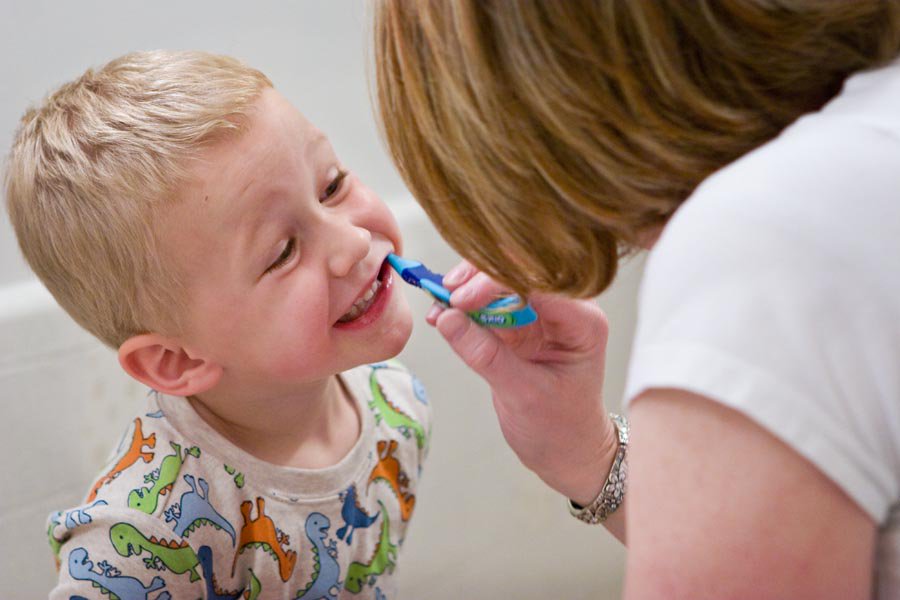
Photo from makelessnoise on Flickr .
As parents, we are used to soothing grazed knees and unravelling fears and phobias. Yet, what happens if a child is frightened of something that we have also come to fear? How do you go about teaching your little one that some fears simply have to be conquered, if you are having trouble doing so yourself?
Take a fear of the dentist, for example. Clearly, this represents an unhealthy anxiety and one which has the potential to cause serious health problems if not defeated. So, every parent wants to be able to take their child to the dentist for check-up appointments and routine procedures.
The reality is that this can be difficult for parents who spend a lot of time worrying about their own dentist appointments. This is why the health of infant teeth always starts at home. If you do not keep to a proper brushing schedule and maintain the health of your teeth, as recommended by your dental professional, it will impossible to convince children to do so too.
They lead by example, so give them a good one and start teaching them about good dental health and hygiene from an early age – in fact, as early as is appropriate. For most children, this is around 3-4 years, because this is when most infants first begin to make an intellectual connection between their actions and their bodies.
Why Good Dental Health Always Starts at Home
If you have a child who is around this age and you are confident of their ability to learn and understand about the dentist, start to teach them about how important their teeth are. This does not have to be an intensive ‘sit down’ lecture. You just have to incorporate learning into the daily routine. While you are helping them to brush their teeth before school, talk about why doing so is important.
Ask your child for their opinion, by posing questions. For instance, ask them what they think their teeth are made out of. Ask them why they think brushing is special and what kinds of things they can do to keep their teeth strong. It is recommended that a child have their first dental appointment between the ages of 1-6 months, soon after the first baby tooth has emerged.
However, a child of this age is simply not going to understand why they are in the dentist chair or what is happening, so it is not really of any use to try and teach an infant about dental health before this point. For very young babies and toddlers, it is all about distraction and maintaining a calm atmosphere, so that the little one does not pick up on any negativity and panic.
As a child starts to get older, you really do need to pull more out of the bag than a cuddly toy or a peekaboo face. In fact, as a child ages and starts to understand more about what is happening, distraction techniques can actually do more harm than good. As aforementioned, if you are open and honest about what is happening and why it needs to happen, children can be encouraged to start taking responsibility for their own teeth.
These handy tips and tricks will help you to get your child to the dentist with as little stress and fear as possible.
Start Dental Visits Early
This is the piece of advice that can make all the difference to how easy your child finds dental appointments. While sitting in that chair will always feel strange and unnerving in many ways – it still does for parents – the more common it is, the less anxiety it will provoke. This is why it is important to follow the recommendation of dentists everywhere and start routine check-ups from around 3-6 months .
If your child is five or six and, suddenly, you introduce this strange new world of white rooms, funny smells, and probing hands, it is bound to be scary. But, if your little one grows up with memories of visiting for routine appointments, it is just going to feel like a normal part of life. Do not forget that the success of this advice starts with you. Your child needs to see that this is a normal and regular part of your life too, so do not shirk your own appointments.
Take a Fun Tour of the Office
The stereotype of the stern dentist, with the indelicate fingers and sharp tongue, is extremely outdated. These days, dental specialists go to great lengths to make patients (of all ages and sizes) feel comfortable in the chair. They are not there to lecture, only to educate and help you make the right decisions. So, do not be afraid to talk to your dental specialist.
The majority of dentists are eager to help parents and educators dispel the mystery around dental appointments. It is common for nurseries and pre-schools to take trips to dentist surgeries, in order to get a look at the tools, talk to the nurses, learn about dental hygiene, and get further acquainted with this kind of clinical environment. If this does not happen at your child’s pre-school, ask your local surgery if there is any chance of a quick tour.
Steer Clear of Negative Words
This can be a tricky thing to do, because most parents speak about the dentist in a very specific way. You might not even realise that you are doing it, but if you have a tendency to describe the dentist using negative words, stop. This is particularly important for ‘H’ (hurt) and ‘P’ (pain) words. Also, try to avoid terms like ‘shot,’ especially if your child has had a stressful experience with needles in the past. The trick is not to lie to a child, but to do all that you can from colouring their experience before it has occurred.
The best example of this can be found when babies and toddlers fall down. In the vast majority of cases, a baby only starts to cry once its parents have rushed to the rescue and made it clear that a bad thing has happened. If you do not worry, fuss, or stress about the child, they will usually just get up and carry on. This is what happens if a child hears a parent constantly talk about the dentist as a scary, painful, and daunting experience. Even if their own visit is routine and involves little probing and no pain, they are likely to panic anyway.
Play Pretend Dentist at Home
As you can see, many of these tips and tricks do not have to involve the actual dentist at all. This is what it means to start dental education at home, as early as possible. The dentist office is a strange place. The noises are unusual, the grown-ups are dressed funny, and the smells are not like anything experienced at home or school. This is why it is vital to get a child acquainted with some of the little details common to dental appointments. If you can make the experience fun, go ahead and do so.
Why not buy a small dental mirror online and play ‘pretend’ dentist with your child? Give them the mirror and the ‘counting stick’ and ask them to count your teeth. Encourage them to give an opinion on the health of your mouth too. If you have fillings, make it clear that these are to be avoided, but you must explain why. If you are going to educate a child about dental procedures, it is important to explain in a way which does not introduce fear. Yes, fillings are for naughty teeth, but sometimes they are necessary.
Avoid Resorting to Bribes
Again, this can be difficult, but bribing your child as a way to get them to comply with dental appointments will only reinforce the idea that check-ups are a bad and scary thing. You need to be sticking rigidly to the notion that a check-up is just no big deal. It happens every now and then. It is usually pretty fast and there is nothing to worry about. It is especially important to avoid bribery with candy or fizzy drinks, for obvious reasons.
On the other hand, it is okay (and encouraged) for parents to naturally introduce a treat or reward for after the appointment. The best way to do this is, again, make no ceremony or pomp about it. If your child always behaves well at the dentist and routinely gets a treat or is taken somewhere fun afterwards, they will naturally start to associate this with good performance. After a while, the two experiences will become intermingled and just a mere mention of the dentist will trigger positive emotions.
Remember to Eat Beforehand
It is common for parents to withhold food until after the dentist, both for the sake of convenience and because it makes it easy to say ‘We’ll go for snacks if you sit nicely and do as you are told.’ This is a bad idea, however, because nothing makes a little one grouchier than an empty stomach. While it is a good idea to stick to light foods, just in case there is any queasiness or stomach ache, don’t be afraid to feed your child before an appointment.
Again, avoid fizzy drinks and candy because this only creates a conflicting message. If you let your child drink soda right before an appointment and then the dentist starts talking about how damaging it is, they will get confused. If your child is scheduled to have a dental procedure and you are not sure whether they should eat beforehand, ask your dentist for advice.
Try Not to Give Empty Promises
It is not easy for parents to watch children get scared or panic during a dental appointment. If a parent has their own fear of the dentist, they can be tempted to provide too much emotional comfort, even before the appointment has happened. All that this does is reinforce ideas about check-ups being bad and scary, so do try to keep your personal responses practical and sensible. Wherever possible, be open and honest with your child.
This is tricky, but it will do your child the world of good. What it does not mean is talk about pain or hurt or describe gory dental procedures. What it does mean is avoiding direct lies and empty promises. So again, if your child is not talking about pain or asking if the visit to the dentist will hurt, there is no reason for you to introduce this fear at all. If it is not something that your little one is worried about, there is simply need to say whether it will or will not hurt.
Give Them Some Control Back
As parents, we tend to forget how terrifying it must be to be a child, subject to all of the confusing and bewildering whims of grown-ups. This is especially true at the dentist. They are ushered from this waiting room to this chair. They are instructed to sit still and say ‘Aaaah’ and ‘be a good boy.’ Ultimately, even the amount of orders given can be daunting for a little one. However, you can alleviate the stress by giving your child some control in the littlest of ways.
For instance, try to avoid things like pulling your child into the appointment room when their name is called. Instead, while you wait, explain what will happen and let them listen for their own name. When it is called, let them inform you themselves. Trust that, as they are a big boy or girl, they know what to do when this happens. Let your child lead the way into the appointment room, if they are confident enough to do so. If they are feeling really chirpy, you can even encourage them to shake hands with the dentist.
Overlook Comfort Objects and Toys
Even if you generally try to avoid carting things like comfort blankets and toys around with you whilst away from home, it is important to acknowledge that they can be really useful in times of stress or anxiety. You do not have to make a big deal out of it, just allow your child to hold on to whatever item or object makes them feel happy if they express a need for it.
In fact, for older children, things like picture books and portable games consoles, while generally discouraged in other social situations, can provide an excellent remedy for probing fingers and even shots. However, do not allow your child to take anything into the surgery that is going to make accessing their mouth even harder. Turning their attention away is fine, but toys which are overly big or bulky are just going to get in the way.
Dress Your Child Comfortably
There are a lot of parents who worry about their children looking too casual or shabby for a dental appointment. As this is a fairly formal and quite rare occasion, it can be tempting to dress your little one up a bit. However, you are advised to keep things as loose and casual as possible. The more physically comfortable your child feels, the easier it will be to speed through the appointment and get a sticker and a word of praise afterwards.
So, think loose materials and nothing too restrictive. If your child is heading to the dentist straight after school, do not get too worked up about tucked in shirts or tidy jumpers. The dental specialist really does not mind how your little one is dressed, so long as they are comfortable, happy, and willing to let them get the job done without stress and fuss. In other words, just try not to fuss or get too flustered yourself, because they will pick up on it.
Stay in the Room at All Times
Your presence, even without soothing words or one on one attention, will naturally put your child at ease. It takes only a second of absence to instil fear – just think about how quickly some children panic if they lose sight of their parent in a supermarket – so be a source of comfort simply by staying put. It can also help to keep talking. You have noticed that dental specialists are fond of chatting, even while performing procedures.
This is because too much empty silence is unnerving. So, even if your child cannot see you (you may be sat behind the chair or their head may be tilted), reassure them of your presence by keeping up a conversation with both them and the dentist. This is should be easy to do, because you dental specialist is likely to be quite the expert in the art of small talk.
Explain the Importance of Touch
This can be one of the most difficult aspects of the dentist to explain to a child. There are lots of educational picture books designed to teach little ones that it is okay for a dental health specialist to physically touch their mouths. And, of course, this is fine, but it is extremely important that you pick your wording carefully here. For a lot parents, simply saying that it is okay for the man or lady to touch you is, for obvious reasons, not very helpful.
So, explain to your child that contact will be made. This is essential, because they need to know to expect an examination and that it is nothing to panic about. Yet, they must also know that this is a special situation and that a dentist is the only stranger qualified to do this. It is entirely up to you how you give this lesson, it is just worth remembering that some educational resources (especially picture books) do not make the distinction between safe and unsafe contact from an adult.
Invent a ‘Safety Signal’
Once again, the trick to getting a child to cope with the strangeness of the dentist is simply to avoid stress, panic, and fear from as early an age as possible. The easiest way to do this is through communication. So, as already mentioned, avoid using negative words and associations. The minutes that you introduce words like ‘pain,’ ‘hurt,’ or ‘cry,’ you legitimise them and make them an expected part of the experience.
If you are worried that your child might get frightened and panic while in the dentist chair, particularly when they are with their mouth open and feeling vulnerable, talk to them beforehand and come up with a ‘safety signal.’ This should be something very simple, preferably using the hands, because talking may be difficult during examinations. Let your child know that if they give you this signal, you will tell the dentist to briefly step away and allow them a few moments to carry out deep breathing, hold your hand, or squeeze a cuddly toy.
Stay Calm and Relaxed
In many ways, this is the single most important piece of advice, because children take all of their emotional cues from their parents. If your child is unsure about whether or not a visit to the dentist is supposed to be frightening, your responses will be their guide. If you are pacing the room, casting worried glances at the dentist, or turning away during the examination, your child will instantly pick up on your anxiety.
In fact, parental fears can be so damaging for children, especially in this situation, that if you have an actual phobia of the dentist, it is probably best to get somebody else to accompany your child to appointments. Remember that you are trying to do what is best for them and that your own neuroses are not relevant to their experience. This can be an emotional challenge, but it really is the best thing for the health of your child’s teeth and mouth.
Seek the Help of a Child Specialist
If you have tried all of the tips and tricks listed above and you still have problems getting your child to sit through stress free dental appointments, it could be time to consult a paediatric specialist . This is usually a last resort, because they are in high demand and waiting lists can be very long. However, they are trained to deal with infant fears, phobias, and behaviour problems. They are a common choice for children with learning difficulties, behavioural issues, and social conditions like autism.
If you work with a paediatric dentist, you are likely to have longer appointments, a more personalised approach, and a much more familiar relationship with the family specialist. The downside is that appointments and procedures at these surgeries can be costly and they make routine check-ups much more of an ‘event.’ Sometimes, however, they are the only suitable choice for children who cannot handle the regular dental environment.
Related Articles
Getting your wisdom teeth removed seems like a daunting experience. To prepare you for this...
Read More »
Taking children to the dentist can be stressful. But there are ways to make dental...
Is your child afraid of the dentist? Fear not! We know a few crucial tips...
- Dental Health (33)
- Dental Plans (16)
- Dental Tips (17)
- Teeth Whitening (3)
- Dentistry for Kids (3)
- Nutrition (10)
- Emergency Dental (4)
- Dental Technology (3)
- Cosmetic Dental (3)
- Your Teeth (18)
- Implants and Bridges (2)
- Root Canals (3)
- Your Life (7)
- 19 Amazing Home Remedies for Removing Plaque Naturally
- What a Pain in the Tooth: How to Diagnose Your Toothache
- 10 Important Things to Know Before You Get Dental Braces
- The Crucial Facts and Deadly Consequences of Tooth Abscesses
- Should I Go to the Emergency Room for a Tooth Abscess?
- Frequently Asked Questions
- Sample Savings
Get Your Card & FREE Info

Get the card that will save you 15–50%* per visit in most instances.
- Complete X-Rays
- Complete Upper Denture
- Get Your Card & Free Info
Call 1-800-240-2973 to speak with a Carefree Dental representative Monday through Friday, 8:00 AM to 5:00 PM CST.

© 2024 Carefree Dental. All rights reserved. Terms and conditions, features, support, pricing, and service options subject to change without notice.
Terms of Service and Privacy Policy Bylaws
Membership Terms, Conditions and Disclosures

Some services may be covered by qualified health plans under the Affordable Care Act (ACA).
This plan is NOT insurance. This is not a qualified health plan under the Affordable Care Act (ACA). This plan does not meet the minimum creditable coverage requirements under M.G.L. c. 111M and 956 CMR 5.00. This is not a Medicare prescription drug plan. The plan provides discounts at participating providers for services. The plan does not make payments directly to providers. The plan member is obligated to pay for all services but will receive a discount from participating providers. The range of discounts will vary depending on the type of provider and services. The Discount Plan Organization is Gallagher Affinity Insurance Services, Inc., at 2850 W. Golf Road, Rolling Meadows, IL 60008, 1-800-240-2973. Plan not available in Alaska, Rhode Island, Vermont and Washington. To view a listing of participating providers visit Find a Provider. You have the right to cancel this plan within 30 days after the effective date for a full refund. Such refund will be issued within 30 days of request.
The discount program provides access to the Aetna Dental Access® network. This network is administered by Aetna Life Insurance Company (ALIC). Neither ALIC nor any of its affiliates offers or administers the discount program. Neither ALIC nor any of its affiliates is an affiliate, agent, representative or employee of the discount program. Dental providers are independent contractors and not employees or agents of ALIC or its affiliates. ALIC does not provide dental care or treatment and is not responsible for outcomes.
Guarantee Trust Life Insurance Company (GTL) provides the Group Accident Only insurance. GTL does not provide nor is affiliated with the discount programs provided as a part of membership in Carefree Dental.
- 325 Sharon Park Drive, Suite D3 Menlo Park, CA 94025
- (650) 321-6448

- Testimonials
- Pediatric Hospital Dentistry

What to Expect During Your Child’s First Dental Visit
Home > About > Blog >

Introduction to the Dental Office
The first visit to the dentist is a foundational step in a child’s lifelong dental care routine. At Paediatric Dentistry Of Palo Alto , we ensure this introduction is as comforting and joyful as possible. Dr. Adams and Dr. Jon take great care to create a friendly and engaging environment, introducing your child to the dental team and explaining the tools and procedures in a fun, understandable way. This approach helps demystify the experience and reduces anxiety for both children and their parents.
Detailed Dental Health Assessment
Upon your child’s first visit, our expert pediatric dentists conduct a comprehensive oral examination. This thorough check includes assessing the teeth for early signs of decay, examining the gums for any signs of inflammation, and evaluating the bite to foresee possible future orthodontic needs. This exam is crucial as it helps in plotting out a customized dental care plan that addresses any specific needs your child might have.

Parental Guidance and Education
One of the most critical aspects of the first visit is empowering parents with the knowledge they need to care for their child’s oral health. Our team provides detailed demonstrations on brushing and flossing techniques specifically suited for young children, discusses the importance of avoiding sugary snacks, and recommends healthy dietary alternatives that enhance dental health. Additionally, we explore the benefits of fluoride and the preventive potential of dental sealants in protecting against cavities.
Preparation for Future Dental Visits
Preparing both parents and children for future visits is essential for ongoing dental health. We discuss what to expect during subsequent appointments, such as the progression of primary teeth, potential orthodontic evaluations, and the timing of fluoride treatments. Regular visits, ideally every six months, are encouraged to monitor and manage oral health effectively, ensuring that children grow up with a healthy and beautiful smile.
Understanding what happens during the first dental visit can greatly alleviate any apprehensions you or your child might feel. At Paediatric Dentistry Of Palo Alto , Dr. Adams and Dr. Jon are committed to making each visit educational, enjoyable, and exceptionally caring. We invite you to start your child on a path to optimal dental health with us. Book your child’s first appointment today and take the first step towards a lifetime of healthy smiles. For easy directions to our clinic, please click here .
Contact & Hours

get in touch
Reliable care for your precious little ones.
At Pediatric Dentistry of Palo Alto, we understand that your child’s health and comfort are your top priorities. That’s why we’ve made it our mission to provide exceptional, reliable dental care in a warm, welcoming environment that puts both parents and children at ease. Our team, led by Drs. Vernon J. Adams, Jr., Jonathan Hurng, and Susan Ku, is dedicated to offering the best pediatric dental care with a special emphasis on sedation dentistry to ensure a comfortable experience for our young patients.
our location
Click to E-Mail
Our Reviews
Hear from happy parents.
Where every child’s smile is cherished! Dedicated to providing expert and compassionate dental care in a welcoming environment, we specialize in sedation dentistry and are proud to offer tailored care for children with special needs. Our team is committed to creating positive dental experiences for all children, ensuring a stress-free visit. Contact us at (650) 321-6448 or drop by at 325 Sharon Park Drive, Suite D3, Menlo Park, CA 94025. Together, we make bright smiles happen!
quick links
- For Patients
- Special Needs Dentistry
Information
- Sedation Dentistry
©Copyright 2024. All Rights Reserved.
Privacy Policy | Terms of Use | Accessibility Statement | Do Not Sell My Information

Dentist Discovers Human-Like Jawbone and Teeth in a Floor Tile at His Parents' Home
W hile visiting his parents’ recently renovated house in Europe, a man spotted something unusual in one of the floor tiles. Upon closer inspection, it appeared to be part of a human jawbone—and it still had a few teeth.
The man could recognize the bone because he’s a dentist, according to a post he made on Reddit last week.
Embedded in a hallway leading to the home’s terrace, the mandible appeared to have been cut at an angle. It reminded the dentist of the CT scans he reviews at work.
“As I am specialized in implant dentistry, I work with this kind of image every day, and it looked very familiar,” he wrote in an email to the Washington Post ’ s Carolyn Y. Johnson.
The man, whose Reddit username is Kidipadeli75, declined to reveal his full name to protect his family’s privacy.
He found the jawbone in a tile made of travertine, a type of limestone that typically forms near hot springs. This specific tile came from a quarry in the Denizli Basin of western Turkey. The travertine excavated there formed between 0.7 million and 1.8 million years ago, which suggests the mandible did not come from a person who died recently.
Travertine forms when a change in chemical conditions cause dissolved calcium carbonate to harden into solid rock. It usually solidifies in layers, giving travertine tiles their distinctive and visually appealing look. These layers can trap anything that falls into them, such as leaves, feathers and even dead animals.
As such, the recent jawbone discovery is “somewhere between uncommon and common,” says Andrew Leier , a geologist at the University of South Carolina and chair of the Geological Society of America’s sedimentary geology division , to Architectural Digest ’s Katherine McLaughlin.
“But it’s not a crazy thing to happen,” he adds.
Anywhere you find travertine tile, you might also find fossils. The travertine-clad Getty Center in Los Angeles, for instance, is a treasure trove of fossils , including feathers, algae, bacteria, an animal foot and leaves.
Since the anonymous dentist posted about the discovery, he’s been contacted by an international team of researchers, and they’re working with him on a plan to remove the tile for study, reports the Atlantic ’s Sarah Zhang. They have also initiated discussions with the company that sold the tile, in hopes of searching for additional remains in other pieces of travertine from the same quarry.
By simply looking at the photo, scientists can’t tell how old the jawbone may be or which species—modern human or early human relative—it may have once belonged to. To sleuth out that information, they hope to run the specimen through a CT scanner and construct a 3D model of it. Chemical analysis of the rock could reveal its age, and samples of the tooth enamel might hold clues to what the jawbone’s owner ate. Teams might even attempt to recover ancient DNA.
However, the photo has revealed at least one interesting tidbit already: The person may have had some dental work done.
“There appear to be absent teeth and the bone tissue has filled into where the teeth once were,” write forensic dental consultants Amber D. Riley and Anthony R. Cardoza in a joint email to Architectural Digest . “Another human potentially intervened and removed teeth due to injury or disease.”
Paleoanthropologists have discovered all kinds of fossils in Denizli Basin travertine, including deer, mammoths and reptiles. They’ve also discovered at least one other set of human remains: fragments of a human skull cap that showed signs of tuberculosis. The skull, which is at least 1.1 million years old , represented the first Homo erectus ever found in Turkey, now nicknamed the “Kocabas hominin.”
So, why didn’t anyone notice the jawbone in the travertine at any point before or during installation? John Hawks , a paleoanthropologist at the University of Wisconsin-Madison, took up this question in a blog post titled “How many bathrooms have Neanderthals in the tile?”
Quarry workers make rough cuts of travertine to create large panels, he writes. While doing so, they check for big defects and any gaps before they begin polishing the stone. Then, they typically stack the tiles for shipping and move on quickly.
“Small defects and inclusions are the reason why people want travertine in the first place, so they don’t merit special attention,” Hawks writes. “Consumers who buy travertine usually browse samples in a showroom to choose the type of rock, and they don’t see the actual panels or tile until installation.”
So, the next time you renovate your home with travertine, take the time to thoroughly inspect the tiles. Or, to boost your chances of stumbling upon a fossil, you might only need to travel as far as your local home improvement store.
“Every time I am in Home Depot, I go through the travertine tile looking for fossils,” says John W. Kappelman Jr ., a paleoanthropologist at the University of Texas at Austin, to the Washington Post .

Visiting a dentist
On this page, eligibility direction, children upto school year 8, adolescents – up to 18th birthday, special-needs dentistry, emergency dental services for adults, dental treatments for injury.
A range of basic preventive, treatment and specialist dental services are available to eligible children and adolescents up until 18th birthday. A limited range of services for some adults is publicly funded. The main publicly funded services are outlined below.
You must meet one of the criteria in the Eligibility Direction to be considered for these publicly funded services. If you are not eligible, you are liable to be charged for the full costs of any medical treatment or disability support service you receive.
To see whether you meet the specified eligibility criteria go to the Guide to eligibility for public health services.
Dental education, preventive and basic treatment services are provided free of charge to pre-school and primary school age children through the Community Oral Health Service. Parents can enrol their children directly or referrals can be made by Well Child providers or general practitioners.
Dental and oral therapists provide most services and dentists provide more specialised treatment if necessary. Dental assessments and treatments usually take place in community-based clinics, often located on school sites, or in mobile dental units. Some treatments are not free, such as orthodontics (including braces, for example).
Contact 0800 TALK TEETH ( 0800 825 583 ) for enrolment information.
A range of free basic dental services is funded for adolescents until their 18th birthday. Services are usually provided by private dentists who are contracted by the local district health board to provide free services for adolescents. The Community Oral Health Service will normally provide enrolment information at the end of school year 8, or adolescents can enrol directly with a contracted dentist.
Children and adults with special medical needs (such as cleft palate) or disabilities that make them unable to access normal dental services or who require dental treatment as part of other treatment (such as for head or neck cancer) can receive free hospital dental services. Part-charges apply for outpatient services, but services are free where a patient needs to be admitted (for example, if they need a general anaesthetic).
Referrals are usually made by dental and oral health therapists, private dentists, or general practitioners.
Emergency pain relief and extractions are provided through hospital dental departments, or by contracted private dentists. These services are restricted to people on low incomes (usually demonstrated by having a Community Services Card). Part charges may apply. Contact the hospital dental department (see your local region website for the phone number).
Work and Income New Zealand can also provide discretionary financial assistance for immediate and essential dental treatment for low income adults. Contact your local Work and Income service centre for more information.
Dental treatment needed due to injury or accident is funded for all people in New Zealand and managed through the Accident Compensation Corporation . Co-payments may be required. Contact your local ACC office for more information.
- Share full article
Advertisement
Supported by
How to Advocate for Yourself at the Dentist
To get the best care, experts recommend speaking up. Here are tips for what to ask and how to evaluate the treatments you are offered.

By Knvul Sheikh
Think about the last time you went to a dentist : Did you walk out feeling like your questions were answered, or did you wonder whether your provider was being straight with you?
Dental visits can be daunting — and not just because of the whirring drills. Dentists may seem to speak another language entirely, and everything they suggest can feel important. You must have a sealant painted on your tooth or risk bacteria creating holes in it. You must get an extraction because an oral infection has spread and is causing pain.
To get the best results and a more positive experience, experts recommend speaking up. Here are tips for what to ask and how to evaluate the treatments you are offered at the dentist.
Get a good look at the problems yourself.
The first step to effectively advocating for yourself is understanding what your problems are. Ask your dentist to show you exactly where the pockets of your gums are getting deeper and letting bacteria accumulate, or which fillings are getting worn down by night grinding .
“You don’t have to get technical about it,” said Ellie Phillips, a preventive dentist based in Austin. “But I would recommend noting if it’s something affecting your front teeth or the back of your mouth. Is it on the outside, which is the cheek side, or is it on the tongue side?” Visual aids like X-rays or images from an intraoral camera — or even just looking in a mirror — can also help demystify what’s going on in your mouth.
Don’t feel pressured to agree to anything — even cleanings.
Your dentist should be able to explain why particular problem areas need specific treatments, said Alyson Leffel, director of patient advocacy and social work at the NYU College of Dentistry. And it’s perfectly reasonable to ask them for time to research and reflect on your options.
Not every child or adult needs cleanings twice a year, for instance. Studies have found they don’t necessarily lead to better dental outcomes. Similarly, experts debate the benefits of extracting wisdom teeth . And old silver fillings don’t always have to be replaced with composite ones. If you feel uncomfortable pushing back in the moment, one way to give yourself more time is to schedule the recommended appointment for a future date, Dr. Phillips said. Then you can call to reschedule or cancel later.
Ask what’s urgent, and what the alternatives are.
Some issues, like an abscess, may need to be treated right away. But others, such as teeth that need to be replaced with implants, should ideally be dealt with over multiple appointments, Dr. Phillips said. It’s the dentist’s job to lay out a treatment plan that prioritizes the most urgent issues and avoids piling major treatments into a single visit . As the patient, you can — and should — request detailed explanations of the benefits and risks of each treatment, what the recovery time is like, whether you will need to take medication to manage pain and whether there are consequences of delaying care.
“The more questions you ask, the more educated you will be about your dental treatment, and the less likely you are to be anxious about it,” Ms. Leffel said.
Experts also recommended asking about alternative treatments, such as antibiotics for managing gum disease instead of scaling and root planing or surgery. There may also be alternative materials available for the same kind of fix, like porcelain, resin or gold crowns.
Get a second opinion.
If you have oral surgery or another big procedure coming up, or feel uncomfortable with your dentist’s recommendations for any reason, consider getting another expert’s perspective.
If you need your bite corrected, talk to an orthodontist. If you have pain or bleeding in your gums, seek out a periodontist. And if a dentist has recommended a root canal or a full mouth extraction, consult an endodontist or oral surgeon, said Craigg Voightmann, a dental malpractice lawyer in Scottsdale, Arizona.
“If there’s a specialty that does the procedure, you shouldn’t have a general dentist doing it for the most part,” Mr. Voightmann said.
Beware of other red flags.
When you first see a new dentist, be wary if they recommend far more treatment than your previous provider ever suggested. Not all procedures are strictly necessary. For example, some early-stage cavities can simply be monitored every couple months and don’t need to be filled right away.
Avoid practices that offer steep discounts just to get you in the door or say they can do complicated procedures like implants in one day, Mr. Voightmann suggested.
And rely on personal recommendations from friends, family or dental professionals themselves. Ask your hygienist or dentist where they would go if they needed the treatment you’re getting, Mr. Voightmann said.
The best scenario is when your dentist’s treatment philosophy aligns with your own.
“They could be the best dentist or specialist in the world, but if you don’t feel comfortable with them, that’s not going to be a successful relationship,” Ms. Leffel said. “So you need to, as a patient, decide what makes you feel the best.”
Knvul Sheikh is a Times reporter covering chronic and infectious diseases and other aspects of personal health. More about Knvul Sheikh
Doctors are taking on dental duties in low-income areas
Physicians are biting into the dentistry industry
- Newsletter sign up Newsletter

Dental deserts are emerging across the country, especially in low-income and rural areas. Because of this, many people do not have access to necessary oral health care, which can lead to worse health outcomes over time. In order to accommodate the lack of dentists, some primary care practices are incorporating dental care in their health offerings.
Not a dentist in sight
Access to dental care is a problem many low-income, minority and elderly Americans face. According to the Health Policy Institute , rural areas have less than half the number of dentists per 100,000 residents than urban areas and that is not for lack of dentists in the field. While enrollment in dental schools has been rising, the "majority of those graduates aren't practicing in underserved communities and don't accept uninsured patients or those enrolled in federal health insurance plans," said the Tampa Bay Times . This has resulted in dental deserts across the country, where there is little to no access to oral health care.
Along with dentists opting to not practice in rural areas, Medicaid does not offer comprehensive dental reimbursements to everyone. And many dentists do not accept Medicaid as an insurance option. Even when a dentist does take Medicaid, the carrier usually only covers emergency procedures and not routine preventative care and screening. "Across the nation, vulnerable and marginalized communities — already prone to higher rates of chronic disease and limited access to health care — are left behind in these dental deserts," said the Tampa Bay Times. "There, patient volume exceeds the capacity of providers, or too few dentists are willing to serve those on Medicaid or the uninsured."
Subscribe to The Week
Escape your echo chamber. Get the facts behind the news, plus analysis from multiple perspectives.

Sign up for The Week's Free Newsletters
From our morning news briefing to a weekly Good News Newsletter, get the best of The Week delivered directly to your inbox.
The lack of regular dental checkups and procedures can have a greater effect on a person's health. "Poor oral health can have far-reaching consequences, not only as a precursor to other physical health issues but as a factor in depression and mental health issues," said Myechia Minter-Jordan, the president and CEO of the CareQuest Institute for Oral Health, to USA Today . "We have to raise the visibility of interconnectedness between oral health and the rest of the body."
Introducing all-rounders
To combat the lack of dental care, some primary care doctors are opting to accept some of the burden. "Federally qualified health centers have a long history of co-locating dental services within their systems," pediatrician Patricia Braun said to CBS News . "We're taking that next step where care is not just co-located, meaning, say, we're upstairs and dental is downstairs, but we're integrated so that it becomes part of the same visit for the patient." Some places have also introduced mobile clinics. "Rural residents face more significant health care provider shortages, including dentists, compared with their counterparts in larger cities," said NPR . "Since the beginning of the pandemic, mobile clinics have increased access to a range of services in hard-to-reach places with sparse populations."
"Providing these services during medical visits increases the frequency of fluoride application," and "improves parents' knowledge of caring for their child's teeth," Tara Callaghan, director of operations for the Montana Primary Care Association said to CBS News. This can have a positive effect, not only on children's health but also on their education and confidence. "The literature documents very clearly that if you are in pain, you're going to miss school more often than other kids, and you're not going to learn as well," Frank Catalanotto, a founding member of Floridians for Dental Access and former dean of the University of Florida College of Dentistry, said to the Tampa Bay Times. "You're also going to have social issues, because if you've got broken-down front teeth, kids are going to make fun of you."
Sign up for Today's Best Articles in your inbox
A free daily email with the biggest news stories of the day – and the best features from TheWeek.com
Devika Rao has worked as a staff writer at The Week since 2022, covering science, the environment, climate and business. She previously worked as a policy associate for a nonprofit organization advocating for environmental action from a business perspective.

The Explainer The future is flooded
By Devika Rao, The Week US Published 25 April 24

In the Spotlight The pilot's union listed 'problematic trends' they say are affecting the airline's fleet
By Justin Klawans, The Week US Published 25 April 24

The Week Recommends These institutions provide insight into American leaders
By Catherine Garcia, The Week US Published 25 April 24
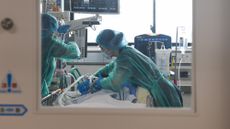
Pros and Cons A medical system that serves everyone comes with its own costs, and they're not only financial
By Rebecca Messina, The Week UK Published 24 April 24

Under the radar Economic crisis is making hospitals unaffordable, with women increasingly not receiving the care they need
By Harriet Marsden, The Week UK Published 23 April 24

the explainer The gap in care is especially glaring compared to how men are treated
By Theara Coleman, The Week US Published 16 April 24

In the spotlight Getting sick has never felt better
By Devika Rao, The Week US Published 5 April 24

In the spotlight Entering the age of not-aging
By Devika Rao, The Week US Published 3 April 24

Under the radar Cancer rates are rising, and the cause is not clear
By Devika Rao, The Week US Published 21 March 24

Under the Radar The drug, also known as naloxone, reverses the effects of an opioid overdose
By Justin Klawans, The Week US Published 19 March 24

Opinion Remote school let kids down. It will take much more than extra tutoring for kids to recover.
By Mark Gimein Published 19 March 24
- Contact Future's experts
- Terms and Conditions
- Privacy Policy
- Cookie Policy
- Advertise With Us
The Week is part of Future plc, an international media group and leading digital publisher. Visit our corporate site . © Future US, Inc. Full 7th Floor, 130 West 42nd Street, New York, NY 10036.
Public school enrollment falling nationwide, data shows

More and more, parents are opting America’s children out of public school.
The share of children ages 5 to 17 enrolled in public schools fell by almost 4 percentage points from 2012 to 2022, an NBC News analysis of Census Bureau data found, even as the overall population grew.
NBC News’ analysis found:
- 87.0% of children were enrolled in public school in 2022, compared to 90.7% in 2012.
- In Kentucky, the share of school-age children in public schools decreased by almost 8 percentage points.
- In South Carolina, the share of children enrolled in public schools decreased by 7.4 percentage points.
- In Alaska, enrollment decreased by nearly 7 percentage points.
During the same period, the share of 5 to 17 year-olds enrolled in private schools increased by 2 percentage points, the Census Bureau data showed. Charter schools saw a similar increase , according to the National Alliance for Public Charter Schools, a nonprofit group dedicated to advancing charter schools.
Educators and researchers say the swing has been caused in part by laws that have targeted public schools while propping up alternatives.
“[The rise in charter schools] is a thread of the larger campaign of privatization,” said Abbie Cohen, a Ph.D. candidate in UCLA’s School of Education and Information Studies. “Those two things are happening at the same time, and I don’t think it’s a coincidence.”
Policies that make private, charter and homeschooling options more available to families — dubbed “school choice” by advocates — have expanded rapidly since 2022. Such policies grant families public funds for alternative schooling in the form of vouchers, tax-credit scholarships, refundable tax credits and more. In 2023, at least 146 school choice bills were introduced across 43 states, according to FutureEd, an education-focused think tank at Georgetown University.
Nineteen school choice laws were enacted last year in 17 states, including South Carolina and Florida, which have seen some of the most dramatic declines of students enrolled in public schools.
As part of the push for school choice, states are eliminating income limits and other eligibility requirements, allowing higher-income families to receive benefits. Eight states passed such laws or created such programs in 2023, FutureEd’s data shows, bringing the total number of states with these programs — commonly referred to as “universal school choice” — to 10.
Though Kentucky has seen the most students leave public schools, it is one of 18 states without a school choice program, and the state doesn’t fund charters. Homeschooling and “microschooling,” where students are homeschooled together and may be supervised by someone other than their own parents, are increasingly popular alternatives. An EdChoice/Morning Consult poll reported that 15% of parents in Kentucky prefer homeschooling, compared to 9% of parents nationwide.
Robert Enlow, the CEO of the nonprofit school choice advocacy group EdChoice, said he is “agnostic” to which options are chosen, but believes the money should follow each student wherever they go.
“Families are saying, ‘Let me have the resources that are due to me, that I get through taxes that are set aside for my kid, and then let me choose,’” Enlow said.
At the same time that states are pushing school choice programs, public schools — already dealing with declining enrollment — have faced budget cuts, teacher shortages, and laws and fights over what is taught in the classroom.
More than 20 states have considered bills since 2022 that would give parents more control over the curriculum in public schools, from granting parents access to course materials prior to classes, to banning instruction on sexual orientation and gender and allowing parents to opt their children out of any classes.
One state that has pushed such laws is Florida. The state has passed several parent rights laws since 2020, including changes to make it easier for parents to ban books from classes, a ban against discussing sexuality and gender identity in younger grades and a ban on teaching critical race theory in classes .
Florida’s 5 to 17-year-old population has grown 9% since 2012, but NBC News’ analysis found that its public school enrollment fell 7% during that span.
Andrew Spar, the president of the Florida Education Association, the state’s largest teachers union, said new laws have unclear directions and handcuff teachers’ ability to instruct without fear of retaliation for what’s discussed in class.
“In Florida, there’s so much micromanaging of our public schools, so many bureaucratic rules and laws that get in the way, that it becomes increasingly difficult for us to do our jobs,” Spar said. “Teachers are vilified; they can’t do their jobs.”
Cohen, from UCLA, said parents are unenrolling students from public schools when they either feel the curriculum is not teaching accurate history, or hope for more conservative changes in school policies and curricula. Her research found that funding cuts are among the policies “fueling mistrust” in public schools and could be leading families to alternatives.
The states with the largest declines in public school enrollment also have the lowest per-pupil spending, Census Bureau data shows . Educators and researchers question whether public schools will bounce back from recent enrollment declines as districts experience a wave of financial struggles and closures .
“Who is hurting the most are the students who have been most historically marginalized in society,” Cohen said. “When more kids are leaving the public schools, that’s less funding for the public schools and those who are left, are left with less.”
Catherine Allen is an intern on the Data / Graphics team at NBC News.

IMAGES
VIDEO
COMMENTS
The first dental visit is recommended by 12 months of age, or within 6 months of the first tooth coming in. The first visit often lasts 30 to 45 minutes. Depending on your child's age, the visit may include a full exam of the teeth, jaws, bite, gums, and oral tissues to check growth and development. If needed, your child may also have a gentle ...
The age 1 dental visit is key for building a lifetime of good oral health. Dental visits for children can be simple, and staff can tailor them to be "kid-friendly.". The goal of the first dental visit is to make the experience welcoming and pleasant. The dental clinic staff may ask you to sit in the dental chair and hold your child in your lap.
Before the Visit: Share with your child the good reasons for going to the dentist. Talk about your child's visit in a good way. Encourage your child about the visit. Do not dwell on possible pain, hurting, or bleeding that might not even happen. Stay in the waiting room if the dentist or the staff ask you to do so.
The American Academy of Pediatric Dentistry, American Dental Association, and the American Academy of Pediatrics recommend that children have their first dental check-up by their first birthday. It may be hard to comprehend what would happen at the visit when there are only a few teeth in the mouth, but dental problems can begin early.
The American Dental Association or (ADA) recommends that you schedule your child's first appointment with the dentist after their first baby tooth erupts. These early visits are encouraged between 12-18 months of age for several reasons. Educating mom and dad on proper nutrition and dental hygiene for their kids is a big part of that.
In fact, your dentist may not have any experience with children. Spend some time researching kid-friendly dentists in your area. Gather a short list and research the dentists further by calling or visiting their offices. The right dentist will be able to comfort your child at the first visit. Use Honesty
Both the American Academy of Pediatrics (AAP) and the American Academy of Pediatric Dentistry (AAPD) recommend that your kiddo be examined by a dentist soon after their first tooth erupts…or within six months of their first birthday. Unfortunately, studies show that the average age when children actually first visit the dentist is three years ...
One goal of dental visits is finding problems early. Tooth decay can be stopped or managed if it is caught early. Treating problems early keeps oral diseases from getting worse and costs less than treatment would later. Treating disease early is also important because oral disease can be transmitted from mother to baby through saliva.
You can prepare a pen and paper or list them on your phone. As you prepare what you must do after your visit, you can make your child enjoy their dental appointment by telling them to say their goodbyes to their dentist and nurses. That way, they'll look forward to their next visit. Takeaway.
Play the dentist at home before the visit. To help to set expectations and make it fun, pretend that you're the dentist ahead of time! Get your child comfortable on a couch or lounging chair and pretend that you're checking out their teeth and counting them. Applaud them for keeping their mouth open by saying affirmative phrases like ...
Book Your Child's Appointment Now. Come visit us in Thornton at 9645 Washington St., Suite 100. You can also reach us with any questions, or to book an appointment, by phone at (303) 455-3313 or by email at [email protected]. We look forward to meeting you, and helping your child grow with great dental health.
Early appointments also help your child have a comfortable relationship with the dentist, easing fears and building trust and understanding that good oral hygiene and regular dental visits are important to overall health. A first visit to the dentist will usually include a full mouth exam, including the gums and surrounding tissue.
There are many distractions for your children, and sometimes Dr. Fisher is your child's mouth and doing an exam before the child even notices! We will also talk about Oral hygiene instructions, tooth eruption, fluoride use and good snacking habits. For a child under the age of 3, most will be completed in the comfort of your lap.
The best preparation for your child's first visit to our office is your positive attitude. Children pick up on adults' apprehensions or their enthusiasm. If appropriate, show your child the pictures of the office and staff on the website. Let your child know that it's important to keep teeth and gums healthy, we will help with that.
Class visit to the dentist. Building links between local schools and a nearby dental practice is one of the most rewarding National Smile Month activities, and also one of the most effective. A class visit to the dentist for early years and primary school children is a great way to engage children in positive oral health messages, whether it is ...
At Care for Kids Pediatric Dentistry, we hope to change each family's expectation of what a dental visit can be! We provide a comfortable, fun, positive dental experience for kids (and their parents!) ... Our waiting room is designed with children in mind. With the BEAM interactive projection system, we have turned our waiting room into a ...
In this video clip, I'm doing a step-by-step demonstration on what usually happens at the dental check up for children. This video is catered to children. It...
Dentist visits, like annual physicals, are a regular part of taking care of our health. Explaining a dentist visit to a child—especially their first visit—should be simple and reassuring, helping them feel comfortable and prepared. It should also encourage checkups throughout their life. We spoke to Amy Herbert, DDS, MHA, to learn more.
Child's First Visit to Dentist {Dental Sedation, Tooth Cavity Removal, Sealants & More}In this video, we will review what to expect at your Childs first visi...
Invent a 'Safety Signal'. Once again, the trick to getting a child to cope with the strangeness of the dentist is simply to avoid stress, panic, and fear from as early an age as possible. The easiest way to do this is through communication. So, as already mentioned, avoid using negative words and associations.
During the first visit, the pediatric dentist will help parents implement a preventative strategy to protect the teeth from harm, and also demonstrate how infant teeth should be brushed and flossed. In particular, infants who drink breast milk, juice, baby formula, soda, or sweetened water from a baby bottle or sippy cup are at high-risk for ...
Introduction to the Dental Office. The first visit to the dentist is a foundational step in a child's lifelong dental care routine. At Paediatric Dentistry Of Palo Alto, we ensure this introduction is as comforting and joyful as possible. Dr. Adams and Dr. Jon take great care to create a friendly and engaging environment, introducing your child to the dental team and explaining the tools and ...
Since the anonymous dentist posted about the discovery, he's been contacted by an international team of researchers, and they're working with him on a plan to remove the tile for study, ...
Israeli strikes on the southern Gaza city of Rafah overnight killed 18 people, including 14 children, health officials said Sunday, as the United States was on track to approve billions of dollars ...
Dental education, preventive and basic treatment services are provided free of charge to pre-school and primary school age children through the Community Oral Health Service. Parents can enrol their children directly or referrals can be made by Well Child providers or general practitioners.
To get the best care, experts recommend speaking up. Here are tips for what to ask and how to evaluate the treatments you are offered. By Knvul Sheikh Think about the last time you went to a ...
House Speaker Mike Johnson (R-La.) on Wednesday doubled down on his support for Israel, pinning the blame on militant group Hamas for the deaths of children in Gaza. "There have been civilian…
Not a dentist in sight. Access to dental care is a problem many low-income, minority and elderly Americans face. According to the Health Policy Institute, rural areas have less than half the ...
87.0% of children were enrolled in public school in 2022, compared to 90.7% in 2012. In Kentucky, the share of school-age children in public schools decreased by almost 8 percentage points.
Around 100,000 children are not getting the required dental treatment because of a "ludicrous" recruitment embargo imposed by the Government, according to Sinn Féin. Speaking in the Dáil, the ...